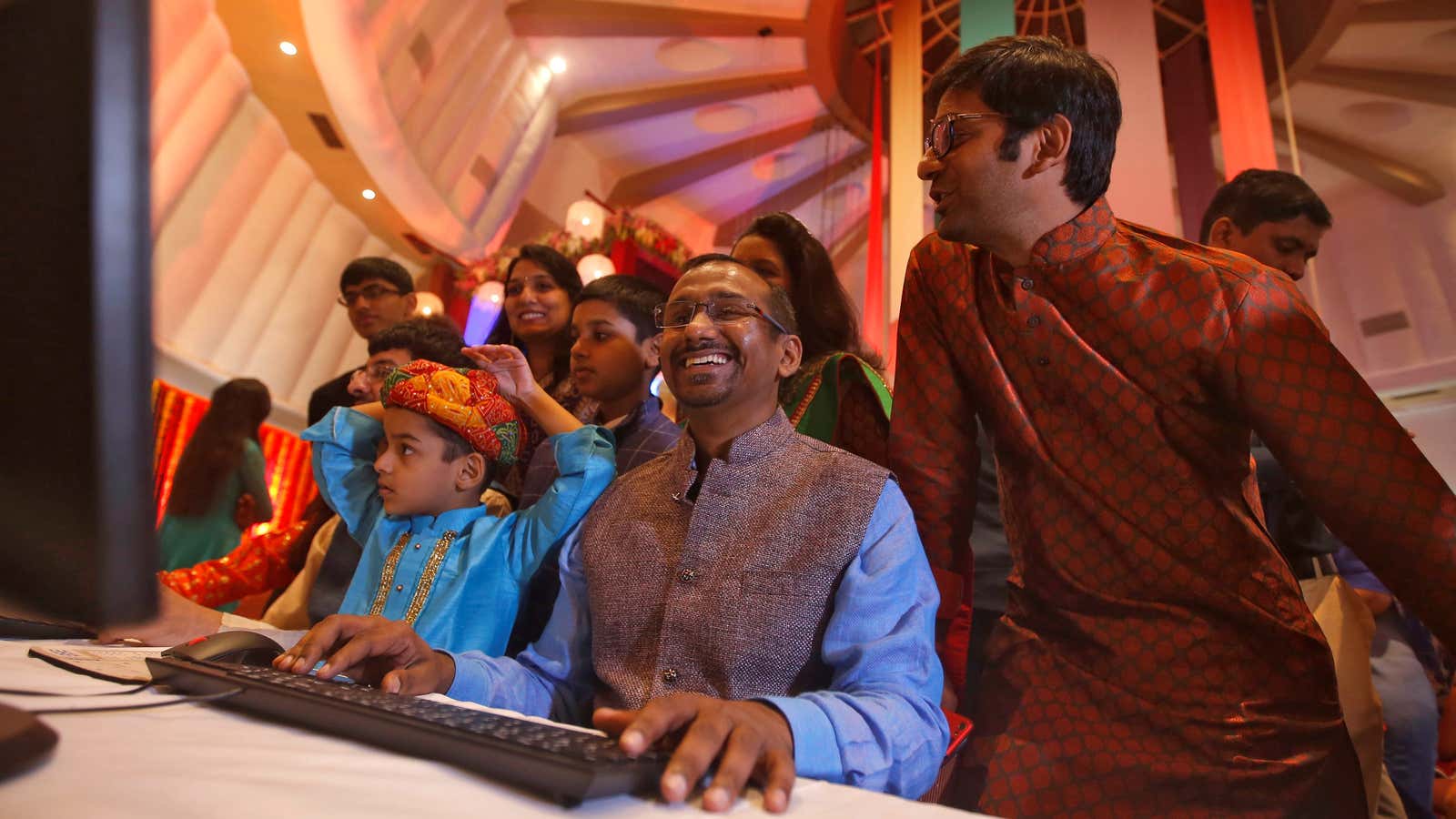Along with pujas (religious ceremonies) and patakas (firecrackers), there’s one more thing that Diwali revelers dig big time: gambling.
Night-long card-game sessions with family and friends have long been a staple of Diwali gatherings in India.
Folklore has it that it was goddess Parvati, after winning a game of dice against her husband, lord Shiva, who decreed that gambling on Diwali night would bring prosperity.
So today celebrations involve games varying from teen patti, a local version of poker, to rummy.
It has also gone online in a big way now, not the least because many migrants to cities are away from their families and friends.
The Spartan Poker, which usually hosts around 500 players at a time, recorded a spike in traffic on the night of Oct. 18, with nearly 1,000 concurrent players, according to The Times of India newspaper. The bets tripled in size from an average of Rs100 ($1.54) per table to Rs300.
Khelo365, another Indian poker portal, let families and friends connect through password-protected “exclusive tables,” The Times of India quoted co-founder Naresh Rajaraman as saying. The site, which usually sees over 10,000 unique players a day, saw daily visitors climb up to 13,000 this week.
Seeing such an uptick, poker sites also raised the rewards. A rummy tournament on Adda52Rummy is luring people with Rs5 lakh in prize money, besides other offers. On Oct. 22, Mad Over Poker is organising six tournaments with prize pools worth over Rs10 lakh. The Spartan Poker’s tournament prize money runs into crores. (For those who might get carried away, be sure to take poker star Aditya Agarwal’s advice: “be aware of your bankroll.”)
Websites aren’t alone, though.
Startups outside the gambling world have also tried their luck earlier. For instance, Hike Messenger launched a multi-player “Teen Patti Nights” ahead of Diwali last year. Hike did not immediately respond to Quartz’s request for comment.
While all this is mostly fun, the illegal gambling industry also gets a boost, with apartments in affluent New Delhi neighbourhoods and posh farmhouses on the city’s outskirts turning into makeshift casinos. Last year, roughly 20 such syndicates played for over Rs1,000 crore, according to India Today.
But amid police crackdowns, even these are now moving online, profiting off the darker side of the web.
